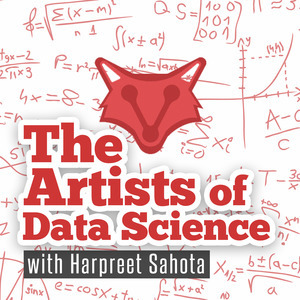AI Ethics and the Meaning of Life | Paul Thagard
March 26th, 2021
1 hr 4 mins 47 secs
Season 10
About this Episode
Paul Thagard,is a philosopher, cognitive scientist, and author of many interdisciplinary books. He is Distinguished Professor Emeritus of Philosophy at the University of Waterloo and a Fellow of the Royal Society of Canada, the Cognitive Science Society, and the Association for Psychological Science.
CONNECT WITH PAUL ONLINE
Website: https://paulthagard.com/
QUOTES
[00:13:55] "The thing about the brain is it's not like a normal computer. We just make one inference at a time. We do this, this, this, this. What the brain does is make these inferences in parallel. "
[00:16:40] "That's one of the problems. But there's problems about the past, too. We can always remember how we acted before. We don't always remember what was successful or what wasn't. We often don't learn from our mistakes. So, the past is problematic as well."
[00:22:56] "I thought it would be fun to keep track of ways in which people screw up, but it is just a way of putting it in a more amusing form."
HIGHLIGHTS FROM THE SHOW
[00:01:35] Guest introduction
[00:02:34] We learn about Paul’s younger years
[00:03:01] When you were in high school, what did you think your future would look like?
[00:03:50] What kind of philosophy did you start getting into as a 15 year old?
[00:04:36] What is the philosophy of science?
[00:05:21] How Paul got into cognitive science
[00:06:18] What is the difference between a mind a brain?
[00:07:09] What’s the difference between perception and inference?
[00:08:32] How is it possible for the brain to discern that what it's looking at is the one objectively true reality if all we have is our perception of it?
[00:09:47] A rundown of the systems in our brain that make emotions possible
[00:11:26] How does the brain perceive the body?
[00:12:52] How does the brain make decisions?
[00:14:58] Why do we get stuck in this analysis paralysis?
[00:17:24] Why is it that we don't learn from our past as well as we should?
[00:19:44] Why does the brain have trouble conceptualizing probabilities?
[00:21:26] Can we “tame” our emotional reactions?
[00:24:22] Why is life worth living and what is the meaning of it all?
[00:28:14] A question about problem solving
[00:30:05] The three aspects of the concept of intelligence.
[00:33:59] The kinds of intelligence that contribute to human intelligence.
[00:35:17] Growing and developing emotional intelligence
[00:37:47] Marvin Minsky and 1978
[00:40:07] The intelligence of recommender systems
[00:41:47] How AI falls short of human intelligence
[00:44:17] Intelligent animals
[00:46:29] The ethics of artificial intelligence
[00:51:06] Which AI ethics principle do you think is going to be of most concern to society?
[00:53:25] How can we instill human values into AI systems?
[00:56:17] It’s 100 years in the future, what do you want to be remembered for?
[00:57:26] The Random Round
